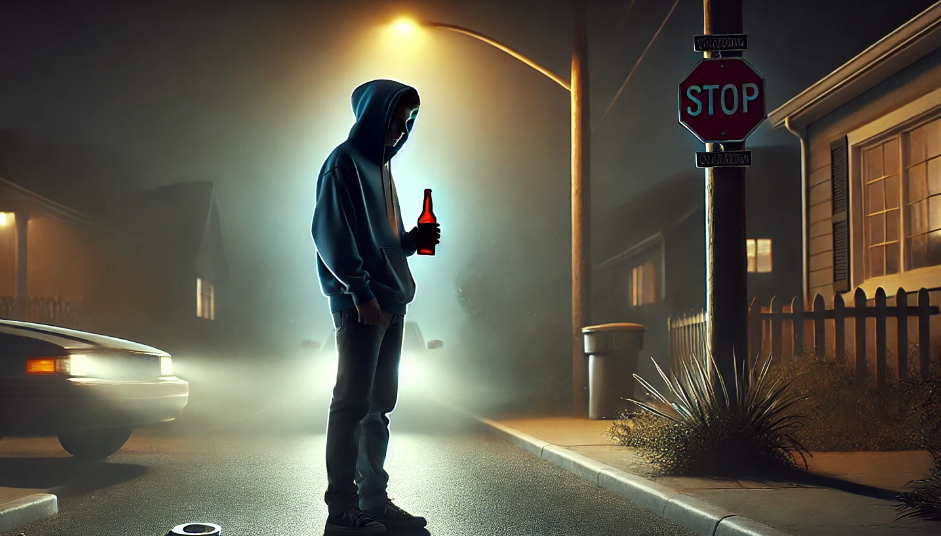Teens Who Wait: The Benefits of Delaying Alcohol Use
Amid all the alarming statistics, here’s a hopeful one: most teens do not drink alcohol. Choosing to wait until 21 (or to never drink at all) is increasingly common, and it comes with huge benefits. In fact, according to a 2023 national survey, only 14.6% of youth aged 12–20 had consumed alcohol in the past monthniaaa.nih.gov – meaning over 85% had not! Despite what some movies or media portray, drinking is not a rite of passage that “everyone” does. Teens who wait to drink are in the majority, and they set themselves up for healthier, safer lives. Let’s explore why delaying alcohol use is one of the smartest choices a young person can make.
Health and Safety Benefits
The teenage years are a critical time for brain and body development. Alcohol can interfere with this development, potentially causing learning problems and memory issues down the roadniaaa.nih.gov. By staying alcohol-free through adolescence, teens allow their brains to mature unimpeded – leading to better focus, mood stability, and cognitive growth. Physically, teens who don’t drink avoid the extra strain alcohol places on the liver and the risk of alcohol-related injuries. Consider that youth who do drink often engage in risky behaviors; by not drinking, a teen practically eliminates those particular risks. They’re far less likely to experience accidents like falls, car crashes, or drownings linked to alcohol. They’re also avoiding the chance of acute issues like alcohol poisoning.
There are long-term safety benefits too. People who start drinking later (at 21 or older) have a significantly lower risk of developing alcohol use disorders in their lifetimeniaaa.nih.gov. The statistics are compelling – if a person can delay alcohol use until adulthood, their likelihood of addiction plummets compared to someone who began in early teens. Waiting literally saves lives: one study noted that the minimum legal drinking age of 21 has saved hundreds of lives by reducing alcohol-related traffic fatalities among youthcdc.gov. Each year, those who wait contribute to this positive impact by not becoming part of those grim statistics.
Academic and Social Upsides
Teens who refrain from alcohol also tend to do better in school and have healthier social lives. Alcohol use is linked with more school absences and lower gradescdc.gov. Conversely, students who stay sober are more likely to have higher academic achievement. They can devote their evenings to homework, sports, arts, or other enriching activities instead of recovering from a party. This pays off in college opportunities and scholarships – many of which could be jeopardized by an alcohol-related incident or simply by poor grades due to partying. Socially, while it might seem like “everyone at the cool kids’ table is drinking,” in reality there are plenty of peer groups that bond over sober fun. Teens who don’t drink often form friendships through clubs, sports, gaming, volunteering, and other interests. These friendships might be more genuine, built on common interests rather than the fleeting camaraderie of sharing a bottle.
Moreover, by not drinking, teens avoid a range of potential social and legal problems: fights, reputation damage, or run-ins with police that drinking teens may experiencecdc.gov. Underage drinking can lead to trouble with the law (e.g., getting cited for possession or breaking curfew) and even family conflicts. Those who wait get to sidestep that drama entirely. They often report feeling proud and confident in their decision, especially as they see some peers struggle with the consequences of early drinking.
Changing the Norm – Choosing to Wait is “Cool”
It’s important to highlight positive examples. We can point to student leaders, athletes, and artists in Salmon who are known to stay substance-free and are respected for it. The more we talk about them, the more we shift the perception that abstaining is abnormal. In truth, saying “no thanks” to alcohol is a sign of self-respect and independence. Teens who wait are exercising maturity – they’re not bowing to peer pressure or advertising; they’re making choices aligned with their goals.
Call to Action: For parents and mentors, reinforce this positive behavior. If your teen chooses not to drink, celebrate that choice. Let them know you’re proud, and encourage them to keep it up. If you suspect your teen feels isolated for not partying, help them find like-minded friends or activities where alcohol isn’t in the picture. For teens reading this: know that you are far from alone in staying sober. The vast majority of people your age are right there with youniaaa.nih.gov. Down the line, you’ll reap the rewards – in health, opportunities, and self-confidence – of the smart decisions you’re making today. Challenge for the community: Let’s highlight and praise alcohol-free youth activities in Salmon. Share stories of teens who excel while staying substance-free. By shifting the norm to support those who wait, we make it easier for the next group of teens to do the same, creating a positive cycle that benefits everyone.
Sources: NIAAA (NSDUH data), CDC, Surgeon General’s Call to Action


Comments
Post a Comment